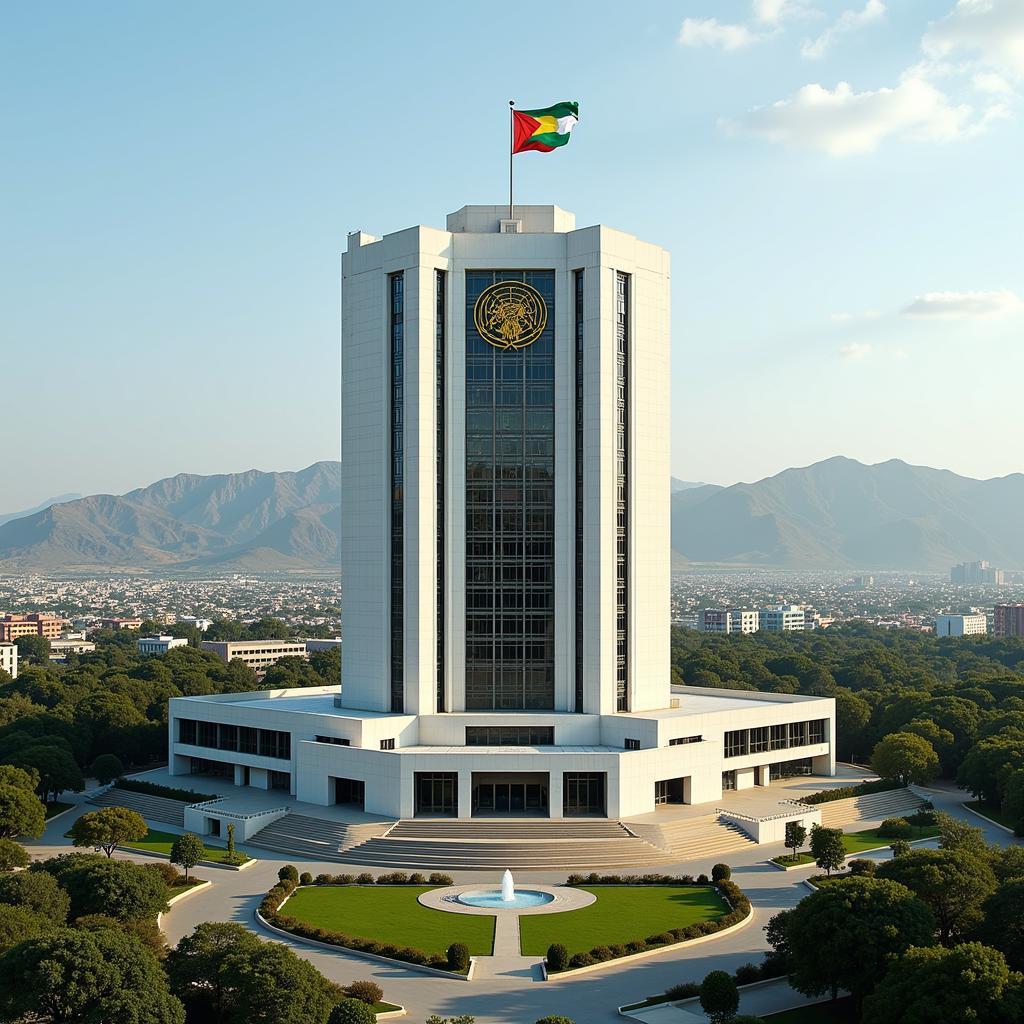Unraveling the African Union Wiki: A Comprehensive Guide
The African Union (AU), a continental body encompassing 55 member states across Africa, is often searched as “African Union Wiki” by those seeking a quick overview. This deep dive goes beyond a basic wiki entry, exploring the AU’s history, structure, achievements, and challenges, providing a comprehensive understanding of this vital organization.
A History Forged in Unity: From OAU to AU
The AU’s roots lie in the Organization of African Unity (OAU), founded in 1963. Born from a shared desire for liberation and pan-Africanism, the OAU aimed to eradicate colonialism, promote unity, and foster development. However, by the late 20th century, its limitations became apparent. The OAU’s focus on state sovereignty hindered its ability to intervene in internal conflicts and address human rights abuses. Recognizing the need for a more robust and proactive organization, the African Union was officially launched in 2002, succeeding the OAU. The shift signified a new era, emphasizing not just unity, but also integration, peace, and prosperity.
 African Union Headquarters in Addis Ababa
African Union Headquarters in Addis Ababa
The Structure of the African Union: Pillars of Pan-Africanism
The African Union’s structure mirrors many intergovernmental organizations, with various bodies working together to achieve its objectives. The Assembly, composed of heads of state and government, is the AU’s supreme decision-making body. The Executive Council, made up of foreign ministers, implements Assembly decisions. The Pan-African Parliament provides a platform for popular participation and representation. The African Court on Human and Peoples’ Rights safeguards human rights across the continent. The Peace and Security Council, perhaps the most active body, is tasked with preventing, managing, and resolving conflicts.
Key Objectives: Peace, Prosperity, and Integration
The African Union’s core objectives revolve around promoting peace, security, and stability across the continent. The AU actively engages in conflict resolution and peacekeeping missions, working to prevent and mitigate crises. Beyond security, the AU champions economic development and integration, aiming to create a unified market and promote intra-African trade. Good governance, democracy, and human rights are also central tenets of the AU’s agenda, reflecting a commitment to fostering inclusive and accountable leadership.
Achievements and Challenges of the African Union
The AU has made significant strides in promoting peace and security, mediating conflicts in various regions. Its efforts in promoting economic integration through initiatives like the African Continental Free Trade Area (AfCFTA) are also noteworthy. However, the AU faces numerous challenges. Limited resources, internal conflicts, and the complex interplay of national interests often hinder its effectiveness. Ensuring the AU’s financial independence and strengthening its institutional capacity remain key priorities.
What is the African Union’s role in international affairs?
The AU represents the collective voice of Africa on the global stage, advocating for the continent’s interests in international forums like the United Nations. It plays a crucial role in shaping discussions on issues such as climate change, development, and peace and security.
How does the African Union address human rights issues?
The African Court on Human and Peoples’ Rights is the AU’s primary mechanism for addressing human rights violations. The AU also works to promote and protect human rights through various charters, conventions, and programs.
Dr. Abimbola Adebayo, a renowned expert on African politics, states, “The AU represents a significant step towards realizing the dream of a united and prosperous Africa. Its role in promoting peace, security, and development is crucial for the continent’s future.”
Echoing this sentiment, Professor Chinua Okonkwo, a prominent historian of the Pan-African movement, adds, “The AU’s journey has been marked by both triumphs and tribulations, but its unwavering commitment to unity and progress remains a beacon of hope for Africa.”
Conclusion: The African Union’s Ongoing Journey
The African Union, born from the ashes of colonialism and the aspirations of Pan-Africanism, continues to strive towards a united, peaceful, and prosperous Africa. While challenges persist, the AU’s commitment to its founding principles, as often searched under “African Union Wiki,” remains steadfast. Its ongoing journey is a testament to the enduring spirit of African unity and the determination to forge a brighter future for the continent.
african countries and capitals wikipedia
FAQ
- What does AU stand for? AU stands for African Union.
- When was the AU founded? The AU was founded in 2002, succeeding the Organization of African Unity (OAU).
- How many members does the AU have? The AU has 55 member states.
- Where is the AU headquarters located? The AU headquarters is located in Addis Ababa, Ethiopia.
- What is the main goal of the AU? The AU’s main goal is to promote unity, peace, and prosperity across Africa.
- What is the AfCFTA? The AfCFTA is the African Continental Free Trade Area, an AU initiative aimed at creating a single continental market for goods and services.
- How can I learn more about the AU? You can learn more by visiting the AU website or researching resources like “African Union Wiki”.
addis ababa is capital of which african country
Looking for more insights? Explore our articles on related topics, such as african elephants iucn.
Need assistance? Contact us 24/7:
Phone: +255768904061
Email: [email protected]
Address: Mbarali DC Mawindi, Kangaga, Tanzania.

